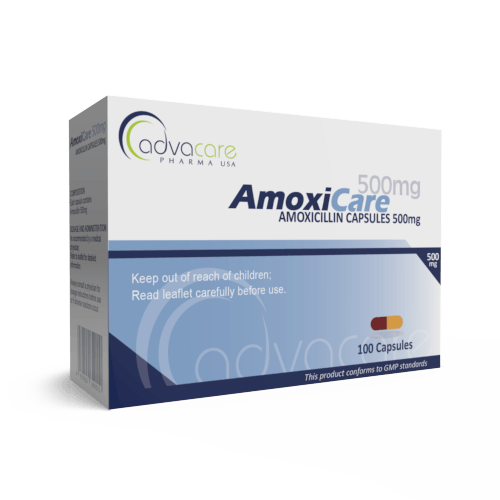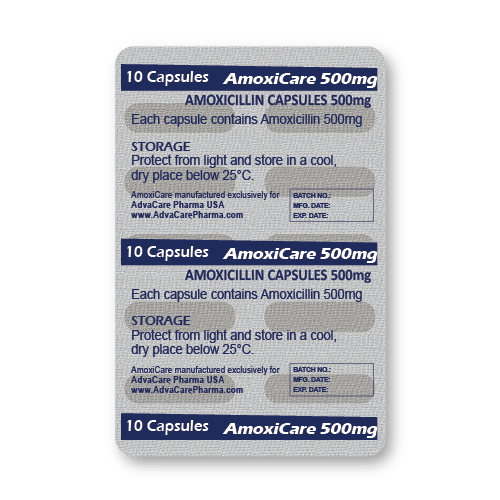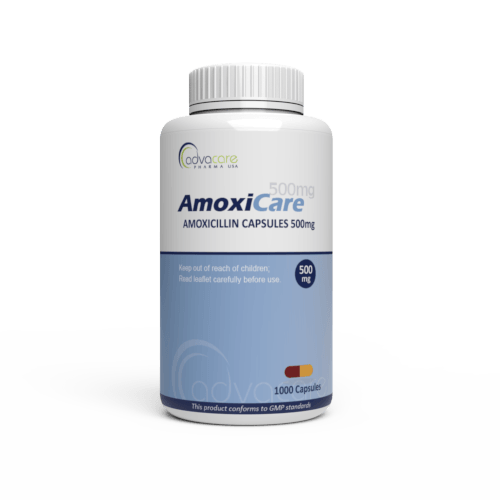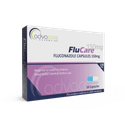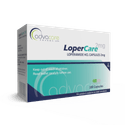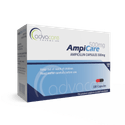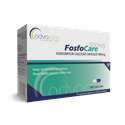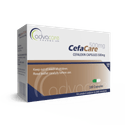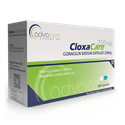- Home›
- Pharmaceuticals›
- Capsules›
- Amoxicillin Capsules
Amoxicillin Capsules
Dosage
Packaging
What is Amoxicillin?
Active Ingredients: Amoxicillin Trihydrate
Amoxicillin Capsules are a penicillin antibiotic drug used to treat different types of infections, such as ear infections, bladder infections, pneumonia, gonorrhea, and salmonella infection. This medication is typically a first-choice antibiotic because it is better absorbed than other beta-lactam antibiotics.
Amoxicillin can be taken as a tablet, oral suspension, or injection, in cases where a patient is unable to take it orally. It can also be administered as an antibacterial dual-therapy with clavulanate as a tablet, oral suspension, and injection.
This medicine will not treat a viral infection such as the common cold or flu.
Amoxicillin is a moderate-spectrum, beta-lactam antibiotic used to treat bacterial infections caused by susceptible microorganisms. It works by killing bacteria to prevent bacterial growth.
Amoxicillin is a derivative of penicillin with a similar antibacterial spectrum and bactericidal action. Its synthesis was first described in 1972 and its use was approved by the FDA in 1974. It acts on bacteria during their multiplication stage by inhibiting cell wall mucopeptide biosynthesis. Amoxicillin competitively inhibits high molecular weight penicillin-binding proteins, resulting in the upregulation of autolytic enzymes, inhibition of cell wall synthesis, and its ultimate bactericidal action.
AdvaCare Pharma is a global supplier of Amoxicillin Capsules. AdvaCare excels at the production of high-quality yet cost-effective medical treatments. These capsules have been manufactured in our GMP-certified facilities located in China, India, and the USA.
Why are we a quality Amoxicillin manufacturer?
AdvaCare Pharma is a GMP manufacturer of Amoxicillin Capsules. Our strategically located facilities ensure that our company has complete control over the supply chain, meaning higher quality products and lower costs for production, transportation and importation. Over the past 20 years, we have built a solid reputation as a leading Amoxicillin manufacturer, one of the 60+ products we manufacture in capsule dosage form, across 65 countries where our pharmaceutical products are distributed.
Uses
What is Amoxicillin used for?
It is used to treat some types of bacterial infections, such as:
- tonsillitis
- bronchitis
- pneumonia
- gonorrhea
- urinary tract infections
How should Amoxicillin Capsules be taken?
This medication is manufactured to be taken orally. The capsules should be taken whole with a full glass of water. Do not crush or chew the capsules. Amoxicillin may be taken every 8 hours or every 12 hours, depending on the prescribed dosage.
Although it is common to feel better before the completion of therapy, amoxicillin should be taken exactly as directed. Incomplete amoxicillin therapy may result in a decreased effectiveness of the immediate treatment and an increased likelihood of developing bacterial resistance that may be untreatable with other antibacterial drugs.
What dose should be taken and how often?
The usual dose for adults is 500mg per day.
The usual dose for children is 40-90mg/kg per day.
Recommended doses for various types of infections:
- For the treatment of mild/moderate ear, nose, and throat infections, the recommended dose for adults is 500mg every 12 hours or 250mg every 8 hours. The usual dose for children (> 3 months) is 25mg/kg every 12 hours or 20mg/kg every 8 hours.
- For the treatment of severe ear, nose, and throat infections, the recommended dose for adults is 875mg every 12 hours or 500mg every 8 hours. The usual dose for children (> 3 months) is 45mg/kg every 12 hours or 40mg/kg every 8 hours.
- For the treatment of lower respiratory tract infections, the recommended dose for adults is 875mg every 12 hours or 500mg every 8 hours. The usual dose for children (> 3 months) is 45mg/kg every 12 hours or 40mg/kg every 8 hours.
- For the treatment of mild/moderate skin infections, the recommended dose for adults is 500mg every 12 hours or 250mg every 8 hours. The usual dose for children (> 3 months) is 25mg/kg every 12 hours or 20mg/kg every 8 hours.
- For the treatment of severe skin infections, the recommended dose for adults is 875mg every 12 hours or 500mg every 8 hours. The usual dose for children (> 3 months) is 45mg/kg every 12 hours or 40mg/kg every 8 hours.
- For the treatment of mild/moderate genitourinary infections, the recommended dose for adults is 500mg every 12 hours or 250mg every 8 hours. The usual dose for children (> 3 months) is 25mg/kg every 12 hours or 20mg/kg every 8 hours.
- For the treatment of severe genitourinary infections, the recommended dose for adults is 875mg every 12 hours or 500mg every 8 hours. The usual dose for children (> 3 months) is 45mg/kg every 12 hours or 40mg/kg every 8 hours.
For infants < 3 months, the exact dosage is dependent on body weight. Due to incomplete renal function, the recommended maximum dose is 30mg/kg every 12 hours.
Refer to a doctor or pharmacist for more specific guidelines on dosage. Do not exceed what they advise.
Who can use Amoxicillin?
Amoxicillin can be administered to adults and children, but caution is advised for the specific groups of patients.
Pregnant Amoxicillin is a category B pregnancy risk. Animal studies do not demonstrate teratogenicity, impaired fertility, or fetal harm, but there are no adequate studies with pregnant people. Current data spanning several decades has been unable to establish the risks of major birth defects, miscarriage, or adverse maternal or fetal outcomes associated with amoxicillin use. Amoxicillin should be used with caution during pregnancy and only if any potential benefits outweigh the possible risks to the fetus.
Nursing Amoxicillin and other penicillins have been shown to be excreted in human milk and adverse effects of infant diarrhea have been reported. Amoxicillin use while nursing may lead to sensitization of infants. The benefits of breastfeeding, the patient’s clinical needs, and any potential risk to the nursing infant should be considered when administering amoxicillin to people who are nursing.
Pediatric In pediatric patients ≤ 3 months old, amoxicillin dosing should be adjusted to account for incomplete renal function that may delay drug elimination.
Geriatric Studies with adults ≥ 65 years old have not identified differences in clinical responses to amoxicillin between older and younger patients, but a greater sensitivity to medication cannot be ruled out in older patients.
Due to the increased risk of toxic reactions to this drug in those with impaired renal function, dosing in geriatric patients should be reduced and done with caution because of age-related decreases in renal function. Monitoring renal function may be useful.
Can Amoxicillin be considered a suitable medication for viral infections?
No, amoxicillin, classified as an antibiotic, is specifically formulated to combat bacterial infections by impeding the synthesis of bacterial cell walls, ultimately hindering bacterial growth. Nevertheless, it is crucial to acknowledge that Amoxicillin is not efficacious against viral infections, including those linked to the flu or common cold.
Its therapeutic attributes are tailored to address bacterial pathogens, and its mechanism of action is not conducive to treating viral illnesses. Therefore, when confronted with viral infections, alternative medical approaches are warranted, as Amoxicillin's effectiveness is confined to bacterial rather than viral agents.
Other warnings
Those with previous hypersensitivity to penicillins or a history of asthma, hay fever, or urticaria are more susceptible to amoxicillin sensitivity and potentially life-threatening anaphylactic reactions.
Clinical presentations of hypersensitivity reactions have been reported as erythematous maculopapular rashes, erythema multiforme, Stevens-Johnson syndrome/toxic epidermal necrolysis, exfoliative dermatitis, acute generalized exanthematous pustulosis, hypersensitivity vasculitis, and urticaria. These reactions may be controlled with antihistamines and systemic corticosteroids in cases where the bacterial infection is considered life-threatening, and discontinuation of amoxicillin is not advised.
Nearly all antibiotics, including amoxicillin, have been associated with Clostridium difficile-associated diarrhea (CDAD). Antibacterial agents alter the colon flora, which can lead to the overgrowth of C. difficile. CDAD can range in severity from mild diarrhea to fatal colitis. These infections can become resistant to antibiotics and some cases may require colectomy. Cases of diarrhea in the months following amoxicillin therapy must be investigated for CDAD. Current antibiotic use may need to be discontinued, and fluid and electrolyte management, treatment of C. difficile, and surgical evaluation may need to be initiated.
Side Effects
As with all pharmaceuticals, some unwanted effects can occur from the use of Amoxicillin Capsules.
Common side effects include, but may not be limited to:
- nausea
- rash
- diarrhea
- vomiting
- abdominal pain
- mild rash
Less common side effects:
- yeast infections
- allergic reactions
Seek medical attention if the following develop:
- dark urine
- persistent nausea or vomiting
- confusion
- anxiety
- insomnia
- sensitivity to light and sounds
- flu-like symptoms
- difficulty breathing
- pseudomembranous colitis caused by Clostridium difficile Infection (CDAD)
For a comprehensive understanding of all potential side effects, consult a medical professional.
If any symptoms persist or worsen, or you notice any other symptoms, please call your doctor.
Precautions
Do NOT use Amoxicillin Capsules if you:
- You are allergic to amoxicillin, cephalosporins, or any other penicillin antibiotic.
- You have asthma, liver or kidney disease, a bleeding clotting disorder, or mononucleosis.
- You are taking a tetracycline antibiotic.
These conditions may influence the decision to prescribe amoxicillin or may require dosage adjustments.
Possible interactions may occur with other pharmaceutical products, including methotrexate. Consult with a doctor or pharmacist about any medications you are taking before your treatment with amoxicillin.
Amoxicillin is known to lower the effectiveness of hormonal birth control, so secondary methods of birth control should be used during treatment.
The use of amoxicillin during pregnancy or breastfeeding does not appear to be harmful but your healthcare provider will weigh the potential benefits against any potential risks.
Amoxicillin Capsules should not be taken with alcohol.
References
Efficacy of Amoxicillin Treatment in Preventing Postoperative Complications in Patients Undergoing Third Molar Surgery: A Prospective, Randomized, Double-Blind Controlled Study
The main objective of this research was to evaluate and compare the occurrence of postoperative complications in patients who undergo a third molar surgery while being treated with amoxicillin.
This is a randomized, double-blind, placebo-controlled clinical trial that included 123 patients. The participants were separated into 3 groups: preoperative amoxicillin treatment, postoperative amoxicillin treatment, and placebo treatment. Several factors were examined during the trial including wound infection, pain, temperature, trismus, dysphagia, intra- and extraoral swelling, and postoperative complications while surgeons and patients were unaware of the treatment choice.
The results showed that patients had no differences in the incidence of pain, trismus, wound infections, temperature, and dysphagia. It was also shown that patients with postoperative treatment had better results.
The conclusion of the research is that amoxicillin is an efficient antibiotic in preventing complications in patients who undergo surgical treatment.

You might be interested in...
Why AdvaCare Pharma?
As an industry leader, we are aware of our responsibility to provide affordable and sustainable solutions to improve healthcare worldwide.
